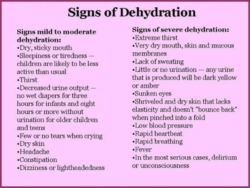What defines narcissists?
A narcissist is someone who is excessively self-absorbed or who has an exaggerated feeling of self-importance. Narcissism, or narcissistic personality disorder (NPD), is a severe mental condition that many people are unaware of.
NPD patients may be seen as self-obsessed or as someone who needs attention and adoration. On the other side, you may have an inward sensation of inadequacy, worthlessness, and emptiness. Having NPD impairs one’s ability to connect with people and develop a sense of self-worth. As a consequence, relationships with family, friends, and coworkers may deteriorate.
Is narcissistic personality disorder prevalent?
According to doctors, up to 5% of individuals suffer from NPD. Narcissism is one of the ten types of personality disorders. As a consequence of these disorders, certain individuals are predisposed to risky behavior. Late adolescence or early adulthood is a frequent stage when personality problems manifest.
What are the symptoms of narcissistic personality disorder (NPD)?
The specific etiology of NPD is unknown. However, a combination of one or more of these variables may be to blame for the disorder.
● Childhood adversity (such as physical, sexual, and verbal abuse).
● Relationships with family members, acquaintances, and friends.
● Genetics is the science that examines how qualities are handed down from generation to generation (family history).
● Children may be more sensitive to textures, noise, and light than adults when they are young.
● The personality and temperament of an individual are important.
What are the hallmarks of narcissism, and how can you determine if someone has them?
If you demonstrate at least five of the following criteria, you will be diagnosed with NPD.
● It is an exaggeration of one’s worth.
● A relentless and unquenchable drive to outshine others in all spheres of life: fortune, power, intellect, love, and beauty.
● A desire to associate solely with persons of high social rank and complexes of superiority.
● A deep craving for admiration.
● Possessing a high sense of one’s significance.
● Possibility of achieving one’s objectives by exploiting others
● There is an inability to comprehend and appreciate the sentiments and needs of others.
● Attitudes and behaviors that are arrogant or pretentious.
Causes
There is no known cause of narcissistic personality disorder. However, as with other mental health issues and the evolution of personality, a narcissistic personality disorder is multifaceted. The following variables are associated with narcissistic personality disorder:
In interactions between parents and children, insensitivity to the child’s reality is shown by either excessive praise or excessive criticism.
Prevention
This implies that there is currently no known strategy to avoid the development of narcissistic personality disorder. However, consider the following:
● If you feel your kid is suffering from a mental health issue, get care immediately.
● If you want to enhance your family’s communication and conflict resolution abilities, family counseling may benefit.
● Consider enrolling in parenting courses and, if necessary, meeting with therapists or social workers.





